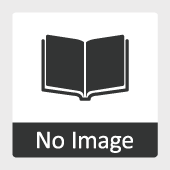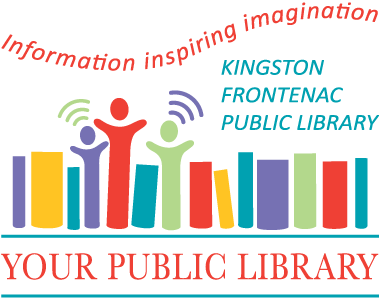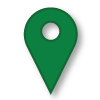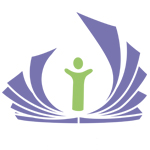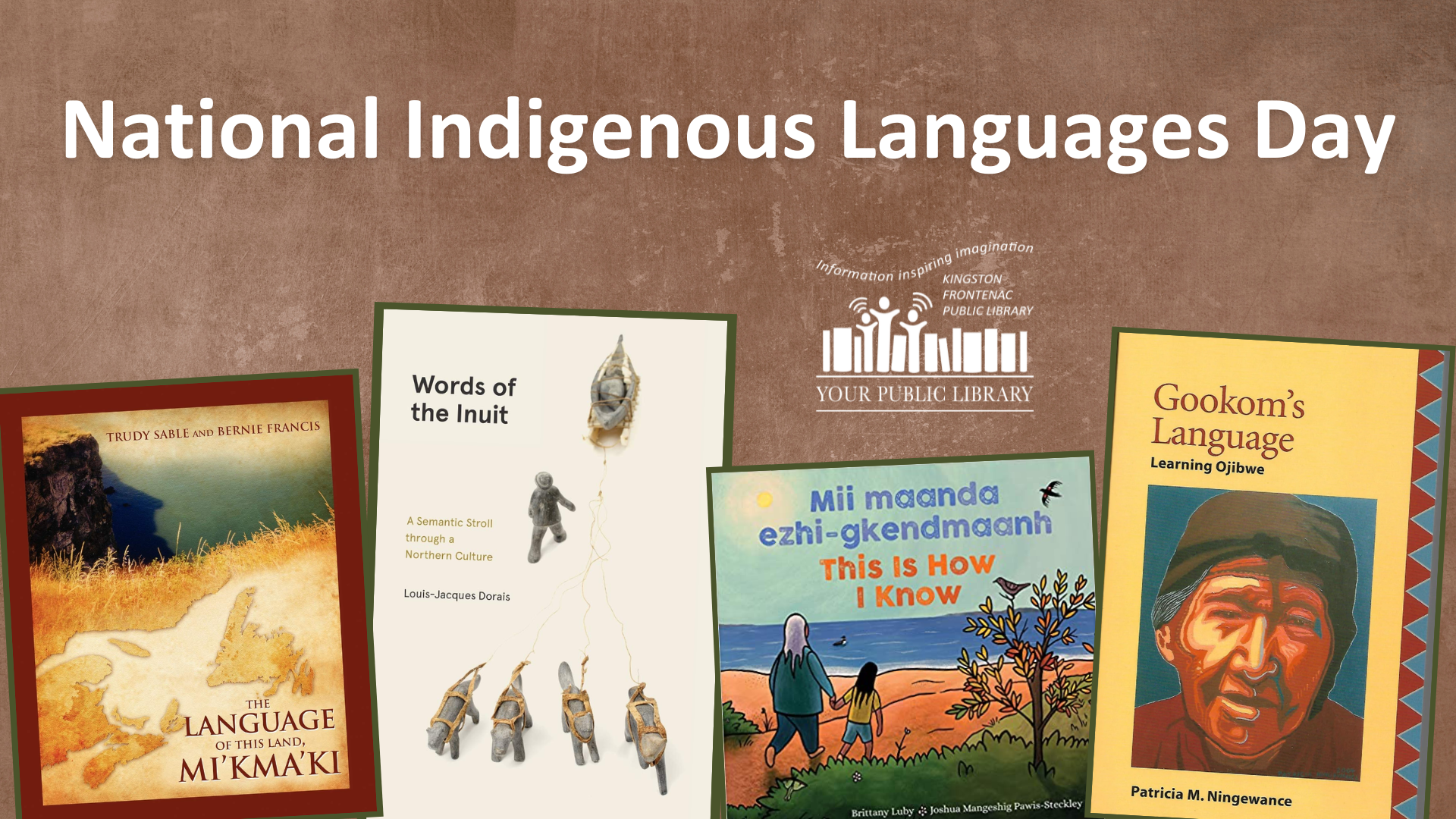
March 31 is National Indigenous Languages Day, an opportunity to recognize and celebrate the rich and diverse heritage of Indigenous languages, and the strength and resilience of Indigenous culture. 2022-2032 is also the United Nations International Decade of Indigenous Languages, which aims to draw global attention to the critical situation of many Indigenous languages and to mobilize the preservation, revitalization, and promotion of these languages.
Visit Kingston Indigenous Languages Nest (KILN) to learn more about one local initiative to revitalize Indigenous language learning. KFPL is committed to the process of reconciliation with Indigenous Peoples, including housing KILN's collection of Indigenous language learning materials in our Calvin Park and Rideau Heights Branches. Learn more about our Indigenous language resources here, and enjoy these books highlighting some of the many Indigenous languages spoken today.
Lii Yiiboo Nayaapiwak Lii Swer: l'alfabet di Michif = Owls See Clearly at Night: A Michif Alphabet by Julie Flett
Michif is a combination of French and Cree with a trace of other regional languages. Once spoken by thousands of people across the prairies of Canada and the northern United States, Michif is now so little spoken that it might disappear within a generation. This alphabet book is part of a resurgence to celebrate and preserve the traditions of the Métis people. Ages 6-9.
Mii maanda ezhi-gkendmaanh: Niibing, Dgwaagig, Bboong, Mnookmig Dbaadjigaade Maanpii Mzin'igning by Brittany Luby
Cette histoire poétique, écrite en Ojibwé et accompagnée d'une traduction française, décrit le parcours d'une petite-fille et de sa grand-mère alors qu'elles se promènent au cours des saisons. Les illustrations fascinantes et le texte lyrique encouragent les lecteurs à se connecter à la Terre et à l'écouter. Elle a beaucoup de choses à dire. Ages 3-7.
Mamaqtuq! by The Jerry Cans
One beautiful spring morning, a group of friends go seal hunting so they can make a delicious stew. Hungry and tired, they begin to think they'll have to give up . . . until they finally spot a seal! This charmingly illustrated book brings to life a popular song by the one-of-a-kind band The Jerry Cans. Ages 5-7.
Words of the Inuit: A Semantic Stroll Through a Northern Culture by Louis-Jacques Dorais
Words of the Inuit is an important compendium of Inuit culture illustrated through Inuit words. Inuit words are often more complex than English words and frequently contain small units of meaning that add up to convey a larger sensibility. Dorais' lexical and semantic analyses and reconstructions are not overly technical, yet they reliably reveal connections and underlying significance that allow for an in-depth reflection on the richness of Inuit identity.
Gookom's Language: Learning Ojibwe by Patricia M. Ningewance
Ojibwe is also known as Saulteaux and Chippewa and is very similar to Algonquin. The people themselves call it Anishinaabemowin. Use this book to learn the language. Each lesson has vocabulary, dialogues and grammatical explanations. Short stories are added in later lessons.
Otter's Journey Through Indigenous Language and Law by Lindsay Keegitah Borrows
In Otter's Journey, Borrows makes use of the Anishinaabe tradition of storytelling to explore how the work in Indigenous language revitalization can inform the emerging field of Indigenous legal revitalization. She follows Otter, a dodem (clan) relation from the Chippewas of Nawash First Nation, on a journey across Anishinaabe, Inuit, Māori, Coast Salish, and Abenaki territories, through a narrative of Indigenous resurgence.
Onondaga-English/English-Onondaga Dictionary by Hanni Woodbury
Onondaga is an Iroquoian language spoken at the Six Nations Reserve, near Brantford, Ontario, and at Onondaga Nation, near Syracuse, New York. The Onondaga-English/English-Onondaga Dictionary is the result of Hanni Woodbury's thirty years of research conducted with contemporary speakers and her study of nineteenth- and twentieth-century textual sources. The dictionary provides meanings and inflections for each lexical base, as well as cross-references for related bases and additional grammatical, phonological, historical, and cultural information.
The Language of this Land, Mi'kma'ki by Trudy Sable
The Language of this Land, Mi'kma'ki is an exploration of Mi'kmaw world view as expressed in language, legends, song and dance. Using imagery as codes, these include not only place names and geologic history, but act as maps of the landscape.
Inconvenient Skin = Nyêhtâwan wasakay by Shane Koyczan
Inconvenient Skin challenges how reconciliation has become a contested buzzword filled with promises and good intentions but rarely with any meaningful follow-through. While Canada's history is filled with darkness, these poems aim to unpack that history to clean the wounds so the nation can finally heal. Powerful and thought-provoking, this collection will draw you in and make you reconsider Canada's colonial legacy.
Legends of the Old Massett Haida - Gaaw Xaadee Gyaahlaangaay by Todd Brown
A retelling of the ancient stories of creation, lessons, and values by the people of Old Massett for a preservation project of CBC Radio and the Haida Heritage and Repatriation Society.




